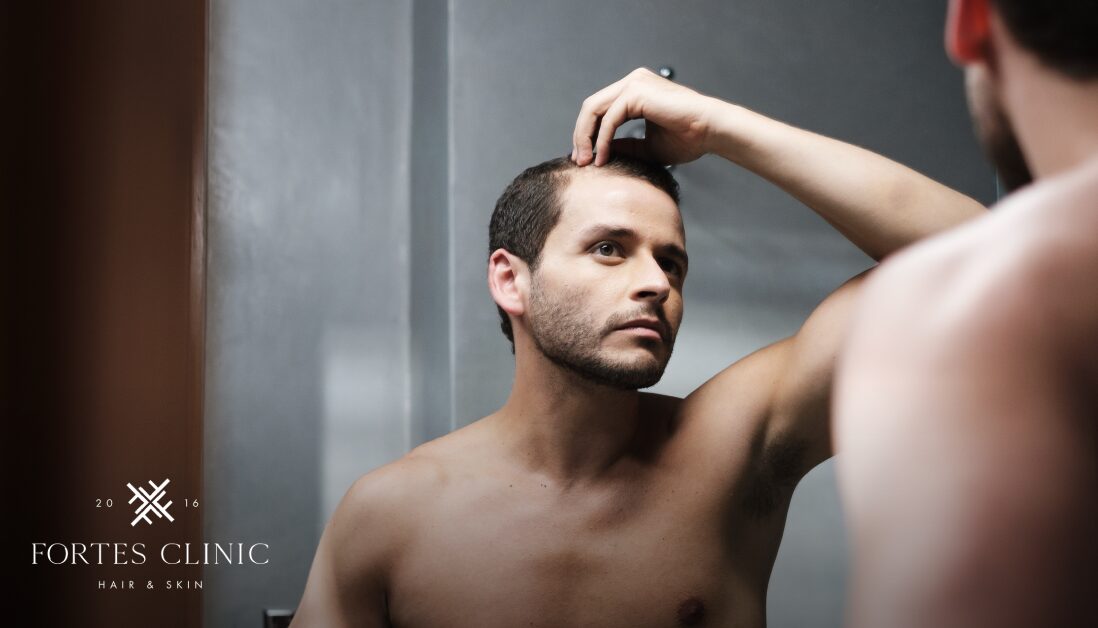Introduction
Hair loss affects millions of people, and for many, it becomes more than just a cosmetic concern. A hair transplant offers a permanent and natural-looking solution. But one of the most common questions people ask is, when should you get a hair transplant?
The right timing depends on several factors, including age, the pattern and stage of hair loss, overall health, and your personal goals. In this article, we explore the key considerations to help you decide when it’s the best time to take the next step.
If you’re still unsure about the procedure itself, you might want to read our guide on how a hair transplant works.
Understanding the Progression of Hair Loss
Hair loss is a gradual process. For men, it often starts with a receding hairline or thinning at the crown. Women may notice an overall thinning of hair across the scalp. It’s important to identify the pattern and stability of your hair loss before opting for surgery.
Transplants work best when the hair loss has stabilised. Performing the surgery too early may result in an unnatural look later if more hair is lost in untreated areas. A specialist at Fortes Clinic can assess whether your hair loss has reached a stable stage suitable for transplant.
Understanding your family history can also provide insight into the likely progression of your hair loss. If your relatives have experienced a similar pattern of hair thinning, your surgeon can use this information to help plan long-term results.
Ideal Age for a Hair Transplant
There’s no strict age requirement for hair transplantation, but it is generally recommended to wait until at least your mid to late twenties. Younger patients may still experience progressive hair loss, which can affect the long-term results.
Having a clear picture of your hair loss pattern allows the surgeon to plan a more effective and natural-looking transplant. That said, age is not the only factor. A thorough consultation is essential to determine if the timing is right for you.
Some patients in their forties and fifties may assume it’s too late to seek treatment, but this is not the case. As long as the donor area is healthy and expectations are realistic, a transplant can be successful at nearly any age.
When Hair Loss Affects Confidence
For many patients, the decision to get a hair transplant comes when hair loss starts to significantly impact their confidence and self-image. If you find yourself avoiding photos, changing hairstyles to hide thinning areas, or feeling self-conscious in social or professional settings, it may be time to consider treatment.
A hair transplant can restore not just your hairline, but your confidence too. When you’re emotionally and mentally ready to take that step, the procedure often has life-changing benefits.
It’s also worth noting that hair restoration is a deeply personal decision. While others might not notice your thinning hair, if it’s bothering you, that’s enough of a reason to explore treatment.
Medical Conditions and Overall Health
Your general health is another important consideration. Conditions like uncontrolled diabetes, scalp infections, or autoimmune diseases may temporarily delay your eligibility for surgery. Your surgeon will take a full medical history to ensure you’re a good candidate.
Smoking and poor lifestyle habits can also affect healing and graft survival. If you’re preparing for a transplant, adopting a healthy lifestyle in advance can improve your results.
In some cases, treating an underlying condition first will help improve scalp health and ensure better transplant results. Your consultation will cover these issues in detail to ensure your timing is safe and effective.
Choosing the Right Time for Recovery
A hair transplant requires some downtime, especially in the first few days after the procedure. You’ll need to avoid intense physical activity, protect your scalp, and follow aftercare instructions carefully.
If possible, schedule your transplant during a quiet period in your calendar. Taking a few days off work or planning it around holidays can allow you the time and space to heal without stress.
You can find more about the recovery process in our article on hair transplant recovery time.
Planning ahead also includes considering any upcoming social events or holidays. While recovery is relatively fast, some redness and scabbing may be visible in the first week, so timing the procedure when you can rest privately is helpful.
When You’ve Explored Other Options
Before deciding on surgery, many people try other non-surgical treatments such as Minoxidil, Finasteride, or PRP therapy. These options can slow down hair loss and improve thickness but may not offer a permanent solution.
If you’ve tried these treatments and feel they’re no longer effective, or if you prefer a longer-lasting solution, a hair transplant may be the next logical step. A consultation at Fortes Clinic can help you evaluate your options and choose the most suitable path forward.
Non-surgical treatments can also be used alongside a hair transplant to enhance results and maintain existing hair. Your surgeon may recommend a combination of therapies as part of a long-term plan.
Personal Readiness and Goals
Timing isn’t just about biology and medical readiness. It’s also about how prepared you feel personally. Whether your motivation is to look younger, feel more confident, or correct a long-standing concern, your goals should guide your decision.
A good candidate is someone with realistic expectations, a stable hair loss pattern, and a desire to invest in a lasting solution. The right time is when you feel fully informed and ready to commit to the process.
It’s also helpful to consider how soon you want to see results. Hair transplant growth is gradual, so if you have a particular milestone in mind such as a wedding or event, starting the process sooner allows enough time for visible improvement.
Conclusion
So, when should you get a hair transplant? The answer is personal. It depends on your age, the progression of hair loss, your health, and your emotional readiness. With expert advice and the right timing, a hair transplant can deliver natural, transformative results.
At Fortes Clinic, we guide each patient through a personalised journey to ensure the best outcome. If you’re considering hair restoration, book a consultation with our specialists today and take the first step toward regaining your confidence.



